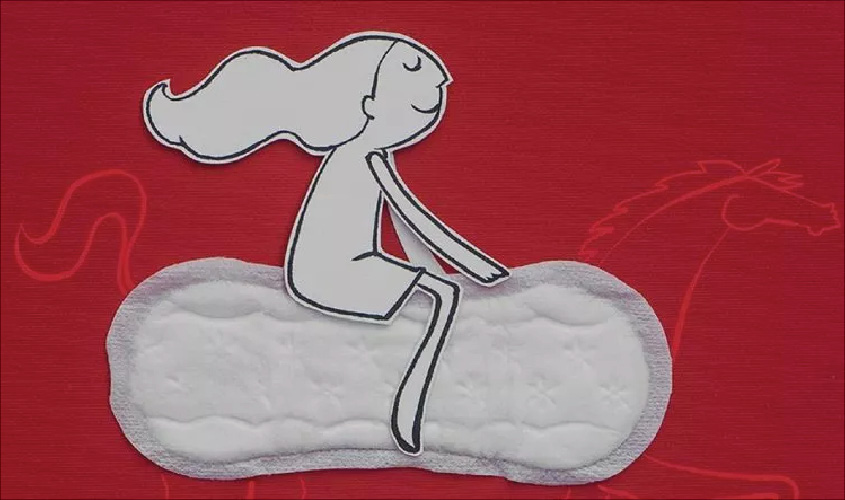Menstrual hygiene brands are focusing on starting conversations and breaking stereotypes around the tabboo subject of menstruation. Will it make real and lasting change?
With Women’s Day approaching, a conversation around menstrual hygiene is the need of the hour. In today’s times, there’s still a major percentage of women living in oblivion about menstrual hygiene and best practices to adhere to. A woman’s reproductive life usually spans around 30 to 40 years and unfortunately, they still use sanitary pads made of inorganic materials and don’t appear to be in the position to have access to decent feminine hygiene products.
And this lack of access boils down to mental and physical health of women as inorganic sanitary pads are prepared using chlorine compounds that contain dioxin, one amongst the most potent carcinogens linked to an increased risk of endometriosis, reduced fertility, cervical cancer, UTI, to name a few. Such products also elevate the existing environmental concern regarding plastic waste disposal.
“Allergy is one of the main reasons. The materials used to make napkins are now available in the market — cotton, gel and plastic. Many of them are even perfumed. Since most of these materials are synthetic, they have an adverse effect on the skin,” said a plastic sanitary napkin expert.
As per the National Family Health Survey 2015-16, 42% of women in India lack access to hygienic means to manage their menstrual cycles, and in 2014, a report from NGO Dasra, titled Spot On, claimed that around 23 million girls drop out of school annually due to lack of proper menstrual hygiene management facilities, which include availability of sanitary napkins and general awareness of menstruation. With the advancement in digital age and the easy availability of information, it is extremely important that we educate women about the availability of organic sanitary products. It is a struggle to provide women with the right products that not only protect health but also the environment.
It is estimated that 12,000 tampons and pads are disposed of by a menstruating woman in her lifetime. Studies have shown that one sanitary pad could take from 500 to 800 years to decompose as the plastic used is not biodegradable. Disposal of sanitary waste still remains a pressing issue in India where garbage segregation remains a distant reality in most places. It continues to be a dilemma that only 26% of Indian women are attentive to and have access to local or conventional sanitary products.
With eco-friendly being the mantra, Noraa, one such brand, is here to provide women with the products they deserve during periods. Our sanitary pads are gentle, soft, safe on skin, and safe for environment. The pads break down and decompose completely in 6- 24 months. They use zero plastic or chemical glue for holding the product together and have layers with a super-absorbent core for immediate absorption that protects against leakage and wetness. An ADL sheet facilitates even distribution and zero bunching for leakage protection. Noraa pads are dioxin-free and use organic cotton, corn starch, and bamboo as raw material, ensuring the ideal pH-level is maintained. The introduction of organic sanitary pads has been a game changer, as most sanitary napkin users have long remained unaware about such options.
Within the broader interest of Indian society, the spread of awareness, education about menstrual hygiene, easy accessibility to such products despite their cost that majorly acts as a deterrent and prevents the range will make a massive difference within the in every woman.
With the raising awareness, not only women are being cautious about their health, but their counterparts are also getting aware of issues that were pushed behind closed doors and discussed in hushed whispers. At present, brands have been taking steps to break this stereotype and encouraging people to discuss it freely with their friends, siblings, parents, spouse. This is a fresh departure from earlier marketing gimmicks which were hell-bent on purporting existing stereotypes.
Noraa has taken an initiative to uncover the issue with its #GetHerAPad Campaign that has been gaining popularity on social media these days. It is an effort to make a resolution by involving men to gift females a sanitary hygiene product and make them feel appreciated and cared for. The campaign has not only been involved in breaking the taboo but also make people in our society break out the shell surrounding the topic.
The writer is the co-founder and MD of Noraav

